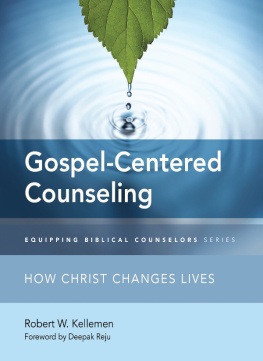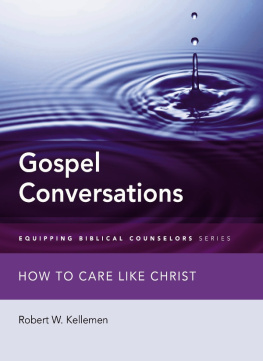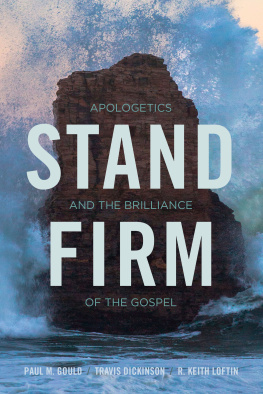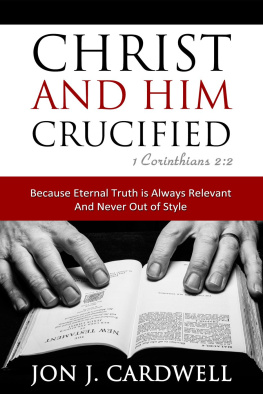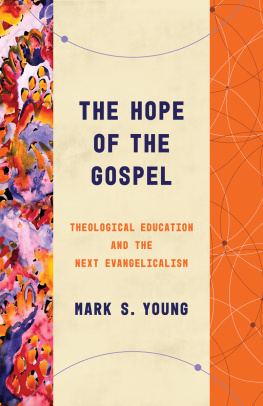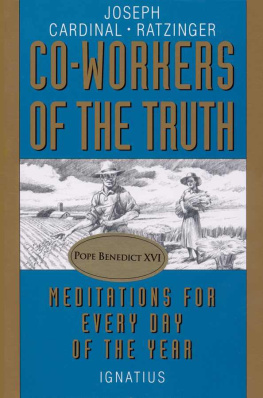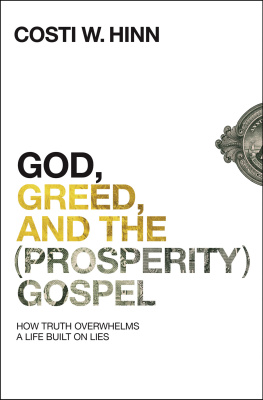Preface
What Is the Biblical Model for Evangelism?
The Word became flesh and made his dwelling among us. We have seen his glory, the glory of the One and Only, who came from the Father, full of grace and truth.
John 1:14
P ICTURE THIS: THE CRUCIAL BATTLE of a war in ancient Greece has been fought. A runner is dispatched with a memorized report of the all-important results. The long journey completed, he arrives exhausted and falls before the Grecian potentate. Gasping, he blurts out, My lord, I was given an urgent message, but... Im afraid Ive now forgotten it!
This book, originally published in 1981, was written to address a concern that many Christians, entrusted with the gospel message, had forgotten the message and their responsibility to accurately convey it. I wish I could now say that the message has been remembered. The recovery of a God- and grace-centered gospel, or, as Dr. James Boice has put it, a rediscovery of the doctrines that shook the world, is imperative.
A Confused Gospel and Confused Evangelism
Have you ever been stymied by evangelism? Do you feel you are tossed between two unacceptable alternatives and cant find your niche? On the one side you see Christians who have great rapport with others but dont say much about Jesus Christ. On the other side are those who are always giving out the gospel but seem to know nothing about genuine friendship. The frustration of bumping into these two extremes in Christian circles is very real.
I was one of those Christians who believed in friendship evangelism, but for me it turned out to be all friendship and little evangelism. Motivation was not a problem for me. I had gone through a life-changing conversion to Christ during my high school years, and Jesus Christ was very real to me. I had a strong desire to tell others about him, yet most of my models for doing so tended toward one or the other of the extremes I mentioned. I had other liabilities: my own lack of Bible knowledge, my personal immaturity, my tendency to view God as existing only for my benefit and a fear of being rejected. With those drawbacks I began my personal pilgrimage to find out what it meant to be a witness for Christ.
At first, witnessing seemed so simple. I knew the message and I knew who needed it. What could be so confusing or difficult about that? I found out all too soon. I didnt have a clear grasp of the content of the gospel. Therefore, my Christian life was stunted, and my ability to winsomely expose nonbelievers to Christ was handicapped.
I was soon beset by a barrage of advice. I was told I should witness by showing others a good time, bringing my high school acquaintances to fun gatherings at church or in the inoffensive setting of a home. The evening would end with a challenging talk. That sounded easy. Others would articulate the gospel for me.
In college I met Christians who emphasized a more direct approach: I should invite anyone and everyone to a small group Bible study or a talk by a layperson in a neutral setting. Nonbelievers should be confronted directly with the Scriptures. Well , I said to myself, that sounds reasonable . Perhaps this is the approach to take . Yet these seemed impersonal and manipulative. I hungered for an effective evangelistic method. Training seminars and booklets abounded.
Not too much later my confusion was intensified because I came in contact with still other Christians who exhorted me to evangelize by the apostolic pattern of preaching: I should bring my friends to hear gifted speakers at church or at special meetings. Still, I was relying on others to do the talking.
Then I had a grand awakening. I saw that I was to witness, not just bring people to others who would witness for me. Fearful, and yet convinced of my duty, I looked for help. Again, I met some Christians who were very zealous and explained to me an entirely new set of ideas and techniques for personal evangelism. I was motivated by an awesome sense of responsibility and increasing guilt because I was led to believe that I was unspiritualor at least unfaithfulif I hadnt led someone to Christ. So I uncritically grabbed onto various methods of witnessing. This approach did involve me in speaking the truth to others. Yet the criterion of success was a numbers game: counting those who prayed, raised a hand or filled out a card.
I was a failure. I had started out with misgivings about the appropriateness of the slick techniques advocated by various successful evangelists. I ended up with misgivings as to whether they fit in with Scripture. My concerns led me to some basic questions of theology.
Uncertainties whirled in my mind. Could a person be motivated to witness, yet actually dishonor God and misrepresent his message through ignorance or manipulation? Was I motivated by guilt or the expectations of others? Was I trying to make excuses for my lack of enthusiasm and success? How could I limit Gods use of me to just friends and invitations to meetings? How could I deny that Gods providence brought people into my life, even if for just a few minutes?
I began to feel like I was caught in a revolving door. Certain questions kept twirling me around. In what way could I lovingly speak to those (even strangers) God brings across my path? Why are the converts of different Christian groups often distinguished by certain personality types? Am I evangelizing only when I see conversions? What are the essential elements of our message? Do I unite with anyone in evangelism because of the great need of people to hear or because of a mutual commitment to gospel doctrines? Why is there such reticence to examine the biblical basis for methods of witness (especially if they are the ones our church uses)?
Why is there such disagreement, confusion and vagueness among those who witness, even on some very basic elements of the gospel? For example, do we just present to the unbeliever Christ as Savior or also as Lord? Is repentance and teaching the law of God part of the gospel? Why is the new birth necessary? What actually happens in the new birth? What is our part in salvation, and what is Gods? How can a person know he or she has been born again? The gospelis it a set of doctrines or a person? If God has done all he can and now leaves the appropriation of salvation to our willpower, how can spiritually dead people respond?
It boggled my mind that once Christians passed beyond the common notion that everyone needs Christ for salvation, there was confusion and even contradiction on what triggered the new birthour faith and repentance or Gods enabling Spirit? These are haunting, important, fundamental questions. How could the majority of evangelicals be so oblivious to the need to research what is the biblical gospel? I could see there were many wrong methods, and I began to despair that I could ever find a way to witness that would take its shape from truth, not pragmatism or the sovereignty of our will in salvation.
All my questions could be boiled down to one: what was the way to witness that would be shaped by a high view of a Creator-Redeemer God who does not merely make salvation available but actually empowers a person to respond by repenting and receiving?
In spite of the unhelpfulness of the advice initially given to me about personal evangelism, I have to admit that the resurgent interest in this topic in evangelical circles is healthy. Who can deny that there has been an increased participation in evangelism? Who could find fault with the new evangelistic concern of many Christians? They have made great sacrifices in money, time and energy. People are using modern media creatively. I am truly thankful for these things. Yet something bothers meand I believe others also have an uneasy conscience. Could some aspects of contemporary evangelism lack biblical integrity?



